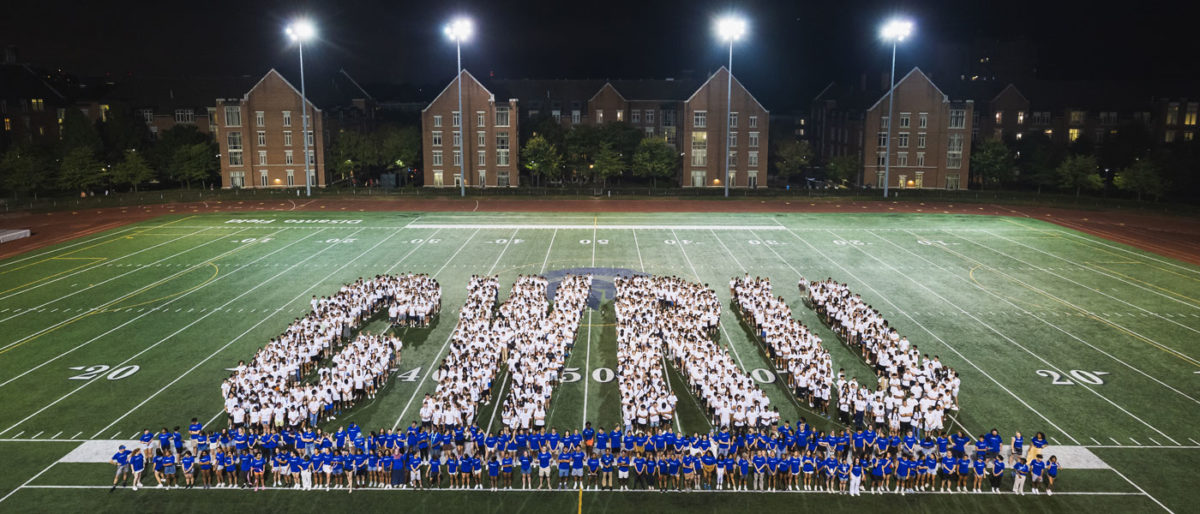The Seminar Approach to General Education and Scholarship program, better known as SAGES, was part of the old undergraduate graduation requirements for Case Western Reserve University students, and is something that students have come to know and love (or maybe hate) during their time here at the university. Last academic year, though, it was announced that this program and all of the undergraduate general requirements would be undergoing revision. Starting this semester, there are new breadth requirements for undergraduates to be aware of. On top of that, the advising program as well as some of the offices around campus have changed too. The new Unified General Education Requirements and four-year advisors will take their place instead.
All CWRU undergraduates admitted in the fall of 2023 will follow the new Unified General Education Requirements (UGER). SAGES will get phased out over the next three years, so those upperclassman students who operated under that program will still be able to satisfy their remaining classes. In addition, all students are able to take the UGER classes, and they can count toward the old SAGES requirements as well. The same goes toward the physical education requirement. For more specific information on how these credits will apply for upperclassmen students, please reach out to your advisor.
The UGER pathway is much like SAGES. Students will start with one class their first year, take three more over their time at the university and end with a capstone. The skills addressed by UGER are communication, quantitative reasoning and wellness, much like the goals of the previous SAGES program. These courses also look to offer a diverse array of moral, global and ethical perspectives to students. The first course in this pathway is a three-credit course called an Academic Inquiry Seminar (AIQS), which is similar to the SAGES First Seminar that first year students had taken in previous years, except half of the incoming class will take it in the fall, with the other half being deferred to the spring. The AIQS courses are taught specifically by the Writing Program, and still focus on writing on a specific topic or context, like with SAGES classes. Known as Topical Seminars, these classes are partnered with Foundations Seminars and Seminars for Non-Native Speakers of English for an array of skill levels for communication and writing in English. Students will only have to take one type of these seminars, as demonstrated by each individual student’s incoming skill level in writing and communication.
Students then have to take two more writing courses over their time at CWRU. These courses are called Communication-Intensive (CI) courses, and the main difference between them and SAGES courses is that CIs are department based, so their goal is to use writing and communication skills to further their learning in a subject, not the other way around. CIs can count for majors and minors as well as for breadth requirements, which can help with graduation requirements later on. However, they cannot be used for dual credit.
The Departmental Seminar taken by students in their last year is now called a Disciplinary Communication (DI) course. The Capstone remains the same, and both of these courses should be taken within students’ majors when they get close to graduation.
Another major difference is that UGER also requires Wellness courses, formerly known as Physical Education. These classes seek to provide wellness opportunities for students, both through activity and without. So, in addition to the half-semester PHED classes, students can take classes such as cooking, leadership and personal finance.
Alongside the changes to the curriculum requirements, the role of four-year advisors has been created to replace and encompass the roles of students’ navigator and Undergraduate Studies dean. The goal of this change is to provide clarity for students in whom they should contact for academic resources, according to Jennifer DeSantis, advisor and senior associate dean of Undergraduate Advising Support. “The four-year advisor role is a merging of the roles and functions from the navigators in Student Advancement and the Deans in Undergraduate Studies,” DeSantis said. “The scope of the four-year advisor is broader than that of a navigator. While the role is still focused on relationship building with our students and supporting them holistically throughout their journey at CWRU; the four-year advisors have a more concentrated focus.”
This broader focus includes more holistic items that deal with students’ academic standing and progress, like degree completion, Pass/No Pass and other academic policies.
Some other changes happening are in different student offices around campus. Post-Graduate Planning and Experiential Education has become the Career Center. The Peer Tutoring, Supplemental Instruction, Academic Coaching programs and others are now all included under Academic Support Resources for Students. The Undergraduate Resource Office is still available to students, which is formally known as Support of Undergraduate Research and Creative Endeavors (SOURCE). A common denominator is that all of these offices have transitioned to be included in the Division of Student Affairs, which may provide a reason for some of these changes.
This coming semester at CWRU has some new and updated resources available to help all its students. DeSantis noted that “students can continue to connect with programs and services and I highly encourage them to do so.” Again, the goals of a lot of these changes were to make things more seamless for students and provide a better academic experience for them. So, reach out to your four-year advisor, and start the semester in stride.



